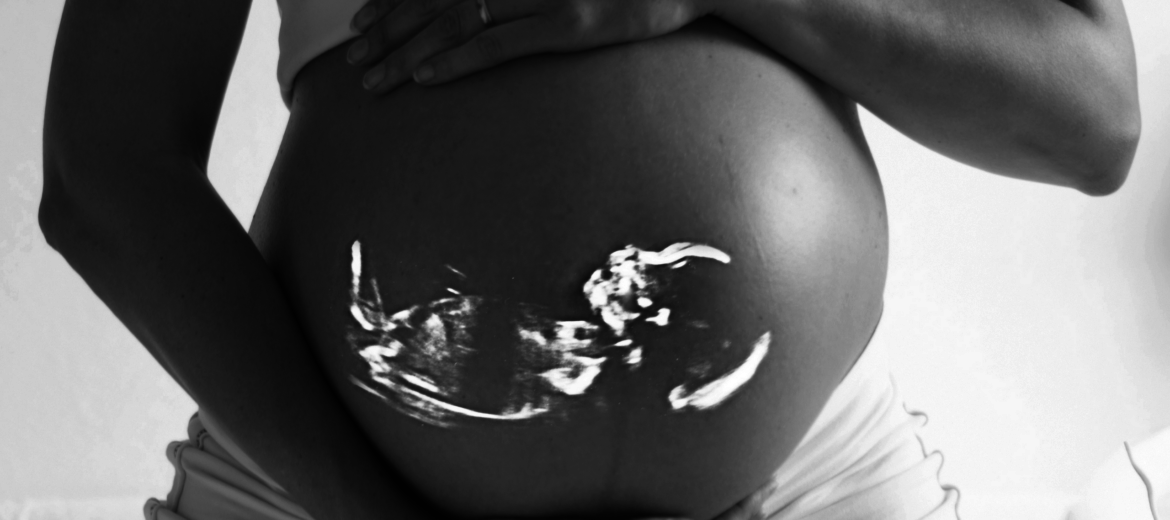Aarti Shah, first-time mom-to-be, excitedly awaited the time she would feel her baby’s first movements, also called quickening. She had heard her mother and grandmother vividly describe the fluttering sensation in the abdomen.
“The foetus may start to move around the 7th or 8th week of pregnancy but women may perceive these movements at different times,” says Dr. Anita Sabherwal Anand, Senior Consultant Obstetrician at Sitaram Bhartia Hospital.
Curious about quickening in first pregnancy, Aarti asked her doctor a bunch of questions.
How early can you feel flutters in pregnancy?
First-time mothers usually feel these flutters much later than second-time mothers – around the 18th– 22nd week of pregnancy.
“First-time mothers may find it hard to differentiate between flutters and gas movement because they haven’t experienced quickening before” explains Dr. Anita.
What does it feel like when the baby moves?
Every pregnant woman describes baby movement in their own unique way.
“Some may describe it as butterflies in the stomach or popcorn popping in the abdomen.”
When Aarti finally experienced ‘quickening’ in the 5th month of pregnancy, she was so happy that she decided to document all movements.
Baby Movements in 5th month of pregnancy
Aarti felt the first movements as a slight roll in her belly in the 21st week of pregnancy.
“It felt like my baby was declaring its presence” recalls Aarti.
Baby Movements in 6 month of pregnancy
In the 6th month of pregnancy, baby movements tend to grow in intensity as the pregnancy progresses.
“Around the 24th week, my baby moved in response to my voice!” Aarti fondly remembers.
Towards the end of the 6th month of pregnancy, these movements turn into noticeable kicks.
Baby Movements in 7th month of pregnancy
In the 7th month of pregnancy fetal movements grow stronger, especially at night.
“In the third trimester, some women have trouble sleeping because of the baby movement” informs Dr. Anita.
“When you’re awake during the day and moving around a lot, the rocking puts your baby to sleep. So by the time you’re ready for bed, your baby is wide awake.”
“My friends used to crib about the increased fetal movement at night during their pregnancy. These movements never bothered me because they reassured me of my baby’s well-being” says Aarti.
As the baby grows, the movement increases in frequency and intensity. They can kick, stretch and make grasping movements.
“We advise expecting women to keep an eye on baby movements especially from the 28th week by counting the number of kicks in a day” says Dr. Anita.
“A drop in the fetal activity could help identify any potential problems.”
Come in for a paid consultation with the best gynecologist in Delhi. Please chat with us on WhatsApp to schedule an in-person/video appointment.
Baby Movements in 8th month of pregnancy
“By the 8th month of pregnancy, I had developed a sense of familiarity with my baby’s movements” says Aarti.
“I felt like my baby and I were communicating with each other through these movements.”
Baby movements tend to increase until the 32nd week. Halfway after the 8th month of pregnancy, these movements remain about the same till the day of delivery.
Reduced Fetal Movement
At 34 weeks, Aarti felt a drop in the number of kicks. Worried, she immediately contacted her doctor who asked her to come in for a checkup.
“In approximately 3 out of 4 cases of reduced foetal movements, a decline in the movement of the baby turns out to be a false alarm” reassures Dr. Anita.
“It could happen because most expecting mothers are distracted by their daily commitments”
“But then again, it is alway better to check.”
After a thorough medical examination, it was found that Aarti’s baby was alright.
A few weeks later, Aarti went on to deliver a healthy baby girl.
“My daughter’s movements were very reassuring and special during the course of pregnancy but nothing beats holding her in my arms” concluded Aarti, beaming.
This article has been written with inputs from Dr. Anita Sabherwal Anand, who has over 24 years of experience as an Obstetrician-Gynecologist and has handled high-risk and low-risk pregnancies successfully. She is loved and appreciated by couples not only for her expertise but also for her optimistic and supportive nature.
 Dr. Anita Sabherwal Anand
Dr. Anita Sabherwal Anand
MBBS, MD (Obstetrics & Gynaecology), DNB Secondary (Obstetrics & Gynaecology), National Board of Medical Education, New Delhi (1999)
Come in for a consultation Please chat with us on WhatsApp to schedule an appointment.
Liked this article? Follow us on Facebook, Twitter, Youtube and Instagram for more content!


